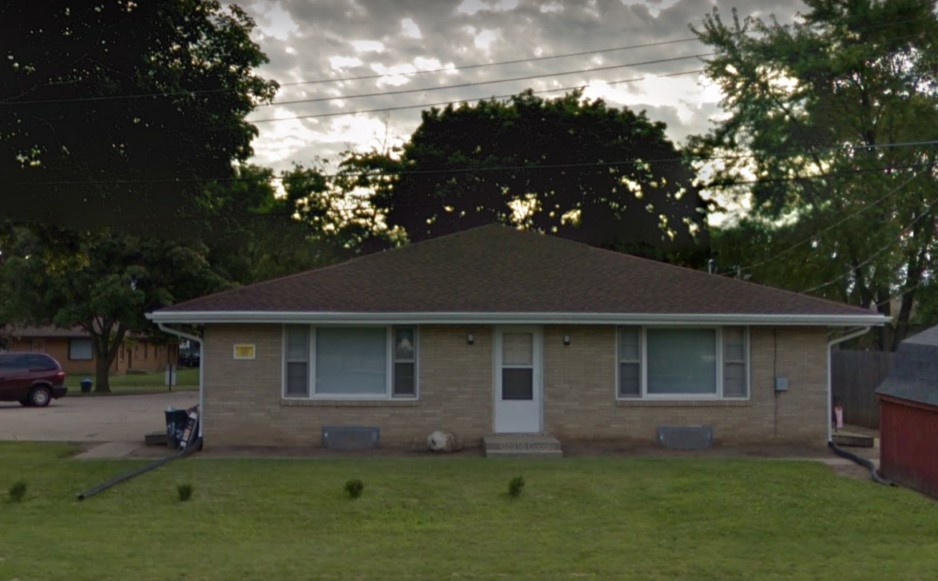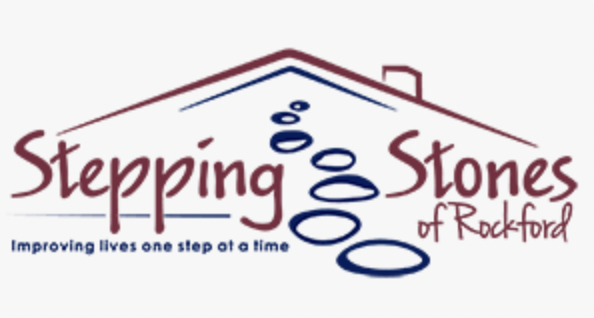Overview
Stepping Stones of Rockford is a mental health treatment center for people seeking treatment near Winnebago County. As part of their treatment modalities for recovery, Stepping Stones of Rockford provides couples/family therapy during treatment. Stepping Stones of Rockford is located in Rockford, Illinois, accepting cash or self-payment for treatment.
Stepping Stones of Rockford at a Glance
Payment Options
- Cash or self-payment
- Medicaid
- Medicare
- Private health insurance
- State mental health agency (or equivalent) funds
Assessments
- Screening for tobacco use
- Comprehensive mental health assessment
- Comprehensive substance use assessment
Age Groups
- Seniors or older adults
- Young adults
- Children/adolescents
- Adults
- Seniors
Ancillary Services
- Case management service
- Court-ordered outpatient treatment
- Diet and exercise counseling
- Family psychoeducation
- Legal advocacy
Treatment At Stepping Stones of Rockford

Conditions Treated
Mental health treatment:
Mental health treatment provides a safe and structured environment where individuals can receive professional care and support for their mental health challenges. Within the facility, trained therapists, counselors, and medical staff work together to create personalized treatment plans tailored to each person's needs. Patients might participate in a variety of therapies, including individual counseling, group therapy, and possibly medication management. The goal is to equip individuals with the tools and strategies they need to cope with their conditions and lead fulfilling lives.
Substance use treatment:
Substance use rehabilitation is a comprehensive treatment approach designed to assist individuals struggling with addiction to drugs or alcohol. This form of rehabilitation addresses both the physical dependency, often starting with detoxification, and the psychological triggers, using various therapeutic methods. The objective is to empower individuals to achieve and maintain sobriety, while equipping them with the tools and coping strategies needed to reintegrate into society and lead a substance-free life.
Co-occurring Disorders:
Dual-diagnosis rehabilitation centers focus on treating individuals with simultaneous mental health and substance use disorders. The intertwined nature of addiction and mental health issues can intensify each other's symptoms, complicating recovery. These centers provide a holistic treatment strategy addressing both conditions together, often encompassing thorough evaluations, a blend of therapeutic methods, family counseling, and post-treatment care.

Levels Of Care
Outpatient:
Outpatient programs cater to individuals who are in good medical condition and are not at a heightened risk of relapse, including those who have successfully finished their inpatient treatment. These programs usually build upon clients' existing treatment strategies, providing ongoing addiction counseling and educational support for recovery. Individuals who enter outpatient care right after detoxification may also undergo medical and psychological evaluations, followed by the creation of personalized treatment plans. Most outpatient rehabilitation centers offer various levels of care tailored to meet each client's specific needs.

Treatment Modalities
Couples/family therapy:
Couples Therapy in rehab helps partners facing addiction recovery to strengthen their relationship. Expert therapists guide couples in addressing substance-related challenges, fostering trust, and enhancing communication, enhancing their chances of lasting recovery together.
Group counseling:
Group Therapy is a therapeutic space where individuals battling addiction come together to share experiences, gain insights, and support one another on their journey to recovery. Facilitated by trained professionals, this setting fosters communal healing and empowers participants to overcome the challenges of addiction through collective strength and understanding.
Cognitive behavioral therapy:
Cognitive Behavioral Therapy (CBT) is a evidence-based psychological treatment that focuses on identifying and challenging negative thought patterns and behaviors. It aims to develop coping strategies and promote healthier thinking to address a variety of mental health issues, such as depression, anxiety, and stress. CBT is typically short-term and goal-oriented, emphasizing the role of thought processes in influencing emotions and behaviors.
Dialectical behavior therapy:
Dialectical Behavior Therapy (DBT) for addiction treatment is a comprehensive cognitive-behavioral approach initially developed to treat individuals with borderline personality disorder. Adapted for addiction, DBT emphasizes the development of four core skills: mindfulness, emotion regulation, distress tolerance, and interpersonal effectiveness. Through individual and group sessions, patients learn to understand their triggers, manage negative emotions, cope with cravings, and improve relationships, all of which contribute to long-term recovery and reduced substance use.
Integrated Mental and Substance Use Disorder treatment:
Integrated Mental and Substance Use Disorder treatment is a comprehensive approach to treating individuals with both mental health and substance use disorders. It aims to address both conditions simultaneously through a coordinated and integrated approach. The goal is to improve overall well-being and reduce the risk of relapse.
Activity therapy:
Activity Therapy is a therapeutic method where patients are encouraged to participate in organized and guided activities that stimulate their mental faculties, improve motor skills, nurture interpersonal connections, and boost self-esteem. Engaging in a variety of activities, ranging from creative arts and crafts to group games, not only serves as a distraction from negative thoughts or behaviors but also facilitates the development of coping strategies, resilience, and a sense of purpose. It offers a comprehensive approach to enhancing an individual's overall well-being during the recovery journey.
Telemedicine/telehealth therapy:
Telehealth Therapy enables individuals to access mental health services remotely through digital technology. Utilizing secure video conferencing, individuals can engage with qualified therapists from the comfort of their home, overcoming geographical barriers and often reducing waiting times. This level of care offers a flexible and accessible approach to mental health support, especially beneficial for those with mobility issues, busy schedules, or residing in rural or underserved areas.
Smoking/vaping/tobacco cessation counseling:
Vaping Cessation Counseling is a specialized form of support designed to help individuals overcome their dependence on electronic cigarettes or vaping products. Through evidence-based strategies, personalized advice, and emotional support, counselors guide individuals towards a nicotine-free life, emphasizing the long-term health benefits of cessation.
Eye Movement Desensitization and Reprocessing therapy:
Eye Movement Desensitization and Reprocessing (EMDR) Therapy is a psychotherapeutic approach designed to alleviate the distress associated with traumatic memories. By stimulating bilateral brain activation through guided eye movements or other bilateral stimulation, EMDR facilitates reprocessing traumatic memories, allowing them to integrate more adaptively into an individual's cognitive schema. It has been found particularly effective for individuals with post-traumatic stress disorder (PTSD) and is endorsed by multiple international guidelines as a recommended treatment for trauma.
Abnormal involuntary movement scale:
The "Abnormal Involuntary Movement Scale" (AIMS) is a tool rated by clinicians to gauge the occurrence and intensity of involuntary motions, typically linked to specific medications. It is widely used to assess tardive dyskinesia in patients taking antipsychotic medications.
Ancillary Services
Additional Services
- Pharmacotherapies administered during treatment
- Metabolic syndrome monitoring
Special Programs
- Clients with co-occurring mental and substance use disorders
- Veterans
- Criminal justice (other than DUI/DWI)/Forensic clients
- Clients with HIV or AIDS
- Clients who have experienced trauma
Contact Information
DISCLAIMER: The facility name, logo and brand are the property and registered trademarks of Stepping Stones of Rockford, and are being used for identification and informational purposes only. Use of these names, logos and brands shall not imply endorsement. BetterAddictionCare.com is not affiliated with or sponsored by Stepping Stones of Rockford.



